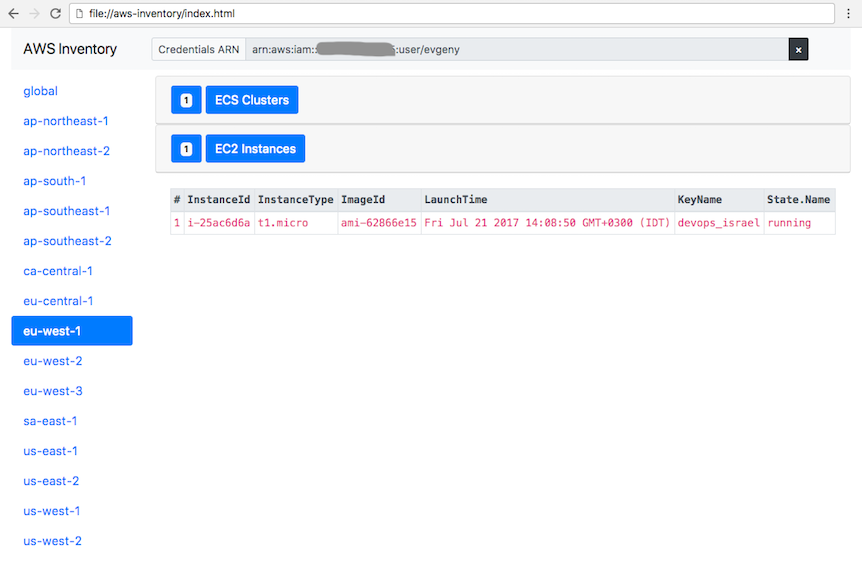A single-file that shows the whole inventory of your AWS services on a single page.
- Clone or copy the
index.htmlfile to your computer - Open the
index.htmlfile in your browser
The AWS Inventory is using the AWS JavaScript SDK and a sprinkle of Bootstrap, this allows to show results in pretty tables from any AWS API.
The syntax to describe table headers and a pointer to the relevant array in the results is using JMESPath syntax (jmespath.org).
Example of the EC2 listing:
{ service: "EC2",
api: "describeInstances",
title: "EC2 Instances",
id: "ec2-instances",
jmespath: "Reservations[].Instances",
headings: ["InstanceId", "InstanceType", "ImageId", "LaunchTime", "KeyName", "State.Name"]
}
This specifies that it should use the AWS.EC2() APIs, and call the
describeInstances method. Then create HTML elements that include the id
ec2-instances and a button with the title EC2 Instances.
The returned results, as documented in callback section for describeInstances
in the official documentation, are searched for Reservations[].Instances for
an array of relevant data to be put into a table.
https://docs.aws.amazon.com/AWSJavaScriptSDK/latest/AWS/EC2.html#describeInstances-property
The table will include the headers described in headings, which also use
JMESPath, like in the example for State.Name so that nested elements can be
references.
The AWS JavaScript SDK does not support all the AWS services when used in a browser, because not all services have CORS enabled.
The list of CORS supported services is available at https://github.com/aws/aws-sdk-js/blob/master/SERVICES.md
We follow the "fork-and-pull" Git workflow.
- Fork the repo on GitHub
- Clone the project to your own machine
- Commit changes to your own branch
- Push your work back up to your fork
- Submit a Pull request so that we can review your changes and merge
MIT License, as described in the LICENSE file
Copyright 2018 © Devops Israel, Evgeny Zislis and contributors
